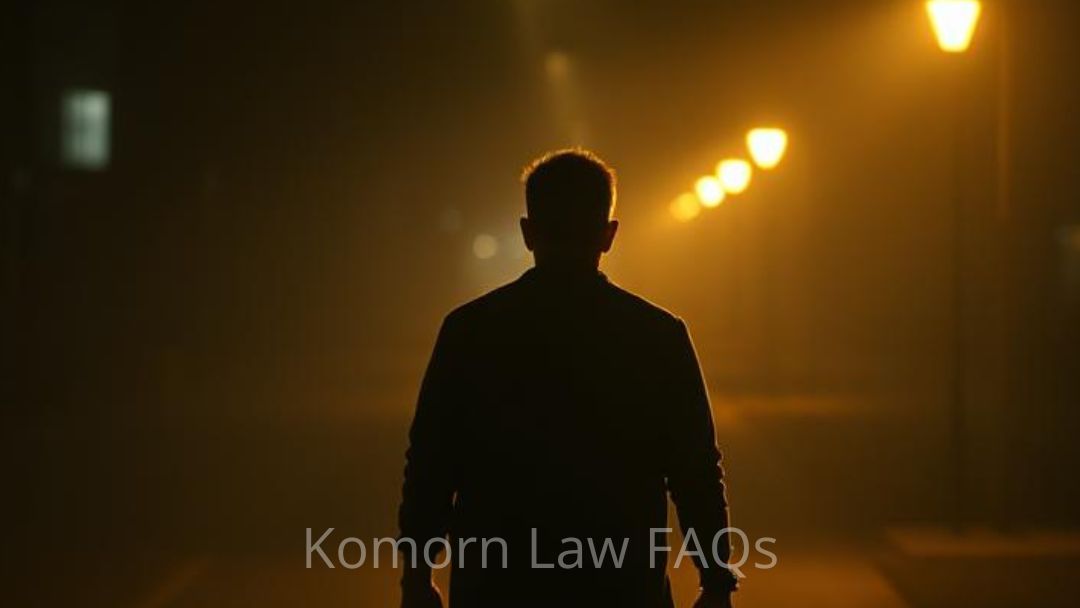Probation and Sentencing Law Changes in Michigan (2021)
Recently, Michigan implemented significant reforms in their criminal justice system, impacting both misdemeanor and felony sentencing as well as probation.
If you or someone you care about is currently on probation or has recently faced criminal charges, it is crucial to seek guidance from an experienced criminal defense attorney. Call our office (248) 357-2550
Rebuttable Presumption
Michigan law now provides a rebuttable presumption that someone convicted of a misdemeanor, other than a serious misdemeanor, must be sentenced to a fine, community service, or other nonjail or non-probation sentence.
A court may depart from this presumption if the court finds there are reasonable grounds for the departure and the court states on the record the grounds for that departure. In other words, the court is now prohibited by law from sentencing someone convicted of a non-serious misdemeanor to probation unless the court explains on the record at sentencing why it is sentencing that person to probation and that reason is considered “reasonable.”
A “serious misdemeanor” includes assault and battery, domestic violence, aggravated domestic violence, assault with serious injury, breaking and entering, illegal entry, child abuse (4th degree), contributing to neglect or delinquency of a minor, prohibited communication through the internet or computer, intentional firearm aiming without malice, discharge of a firearm intentionally aimed at a person, discharge of an intentionally aimed firearm resulting in injury, indecent exposure, stalking, worker injury in a work zone, leaving the scene of an accident, drunk or drugged driving (OWI or OWVI) involving property damage or physical injury/death to another individual (including while operating a watercraft or boat), and selling alcohol to someone under 21 years old.
The new law alters the sentencing period for individuals convicted of misdemeanors and felonies. In general, most felonies now carry a maximum probation term of 3 years, with the possibility of extensions up to 5 years. However, there are exceptions for felony stalking and certain sex offenses, which may still result in lifetime probation.
It is crucial that the conditions of probation are carefully tailored to address the assessed risks and needs of the probationer, as well as the needs of any victims involved. Courts are now obligated to specify the “rehabilitation goals” for each defendant during sentencing.
The conditions of probation must be customized to the individual, address their assessed risks and needs, aim to reduce recidivism, and address the harm caused to victims, their safety concerns, and any requests for protective measures or restitution. Courts also have the authority to make appropriate adjustments to the probation conditions, always considering the specific rehabilitation goals.
Early Discharge of Probation
If you have completed over half of your probation term and met all required programming without any violations in the past three months, you may be eligible for early discharge from probation.
You can notify the probation department or file a Motion for Early Discharge of Probation to request early discharge, and the court may consider it at its discretion. Inability to pay fines or fees does not make you ineligible for early discharge, but the court must consider any outstanding restitution and its impact on the victim.
The court will review your behavior on probation to determine if early discharge is warranted. They may grant early discharge without a hearing, but if they find that it is not warranted, they will conduct a hearing for you to present your case.
Certain crimes are not eligible for early discharge from probation. If your probation officer does not notify the court of your eligibility, contact a criminal defense attorney. Thorough preparation for your early discharge hearing is crucial, and an experienced attorney can guide you through the process.
The Court Should Not Impose a Jail Term or Place the Person on Probation
When sentencing an individual to a misdemeanor, there is a rebuttable presumption that the court should not impose a jail term or placed the person on probation. MCL 769.5(3).
Except “serious misdemeanors” as defined by MCL 780.811(1)(a).
A serious misdemeanor includes an original offense charged as a “crime” but pleaded down. MCL 780.811(1)(a)(xviii).
Crime is defined as a felony-incarceration greater than 1 year. MCL 789.752(1)(b).
Nonjail/Nonprobationary Sentence
Q: MCL 769.5(3) provides that “[t]here is a rebuttable presumption that the court shall sentence an individual convicted of a misdemeanor, other than a serious misdemeanor, 5 with a fine, community service, or other nonjail or nonprobation sentence.”
The statue was effective March 24, 2021. Is it retroactive?
A: MCL 769.5(3) does not expressly indicate that it is retroactive. Therefore, the court will need to determine whether this statute applies to offenses committed on or after March 24, 2021, or rather to those sentenced on or after March 24, 2021.
Q: What does a nonprobation sentence look like?
A: A nonprobation sentence is any lawful sentence that does not include an order of probation. As contemplated in MCL 769.5(3), this may include a fine, community service, other nonjail, etc. If the court orders a defendant to complete certain activities as part of a nonprobation sentence, the court should determine how it will monitor compliance.
More Posts

Criminal Law FAQs – Traffic Offenses
Michigan Criminal Laws FAQs Traffic OffensesAccording to Michigan State Law (Michigan Compiled Laws - MCL), Traffic Offenses encompass a wide range of violations related to the operation of motor vehicles on public roads and highways. These offenses are primarily...

Criminal Law FAQs – Drunk and Disorderly
Michigan Criminal Laws FAQs Drunk and DisorderlyAccording to Michigan State Law (Michigan Compiled Laws - MCL), there isn't a specific statute that solely defines "Public Drunkenness" as a statewide criminal offense in the same way some other states might have a...

Criminal Law FAQs – Drinking Alcohol or Smoking Marijuana and Driving
Michigan Criminal Laws FAQs Operating a Motor Vehicle Under The InfluenceWalking is cool... For fun and excercise. Not because you lost your license. Don't do the crime if you can't pay the price. But if you do get charged with a crime. Better Call Komorn to fight for...

Criminal Law FAQs – Probation Violations
Michigan Criminal Laws FAQs Theft CrimesAccording to Michigan State Law (Michigan Compiled Laws - MCL), a Probation Violation occurs when a person who has been sentenced to probation fails to comply with the terms and conditions of their probation order. These terms...

Michigan lawmakers want to revive “junk science” roadside drug testing
The Roadside Drug Test...AgainHouse bills 4390 and 4391The proposed House bills 4390 and 4391 would enable law enforcement to administer tests aimed at assessing driver impairment; however, these testing devices do not provide information regarding the level of...

Criminal Law FAQs – Theft Crimes
Michigan Criminal Laws FAQs Theft CrimesAccording to Michigan State Law (Michigan Compiled Laws - MCL), Theft Crimes generally involve the unlawful taking of someone else's property with the intent to deprive them of it, either permanently or for a significant period....

Criminal Law FAQs – Domestic Violence
Michigan Criminal Laws FAQs Domestic ViolenceAccording to Michigan State Law, Domestic Violence is not a standalone criminal offense but rather a designation applied to certain crimes when the victim is a "spouse or former spouse, an individual with whom the person...

Criminal Law FAQs – Assault and Battery
Michigan Criminal Laws FAQs Assault and BatteryAccording to Michigan State Law, Assault and Battery are distinct but often related offenses. There isn't one single statute that explicitly defines both terms together. Instead, their definitions have evolved through...

Other Bodily Fluid House Hearing – HB-4391- Update 5-22-25
Michigan House HearingHB-4391 Saliva Test Update 5-22-25Watch the hearing or read the summary.Click here or image below to see videoFYI: Marijuana although voted to be legalized is still classified as a controlled substance in the State of Michigan and Federally. More...

Criminal Law FAQs – Marijuana Offenses
Michigan Criminal Laws FAQs Marijuana OffensesFAQ 1: Is recreational marijuana legal in Michigan? Answer: Yes, recreational marijuana is legal for adults 21 and over in Michigan. However, there are restrictions on possession, use in public places, and driving under...











